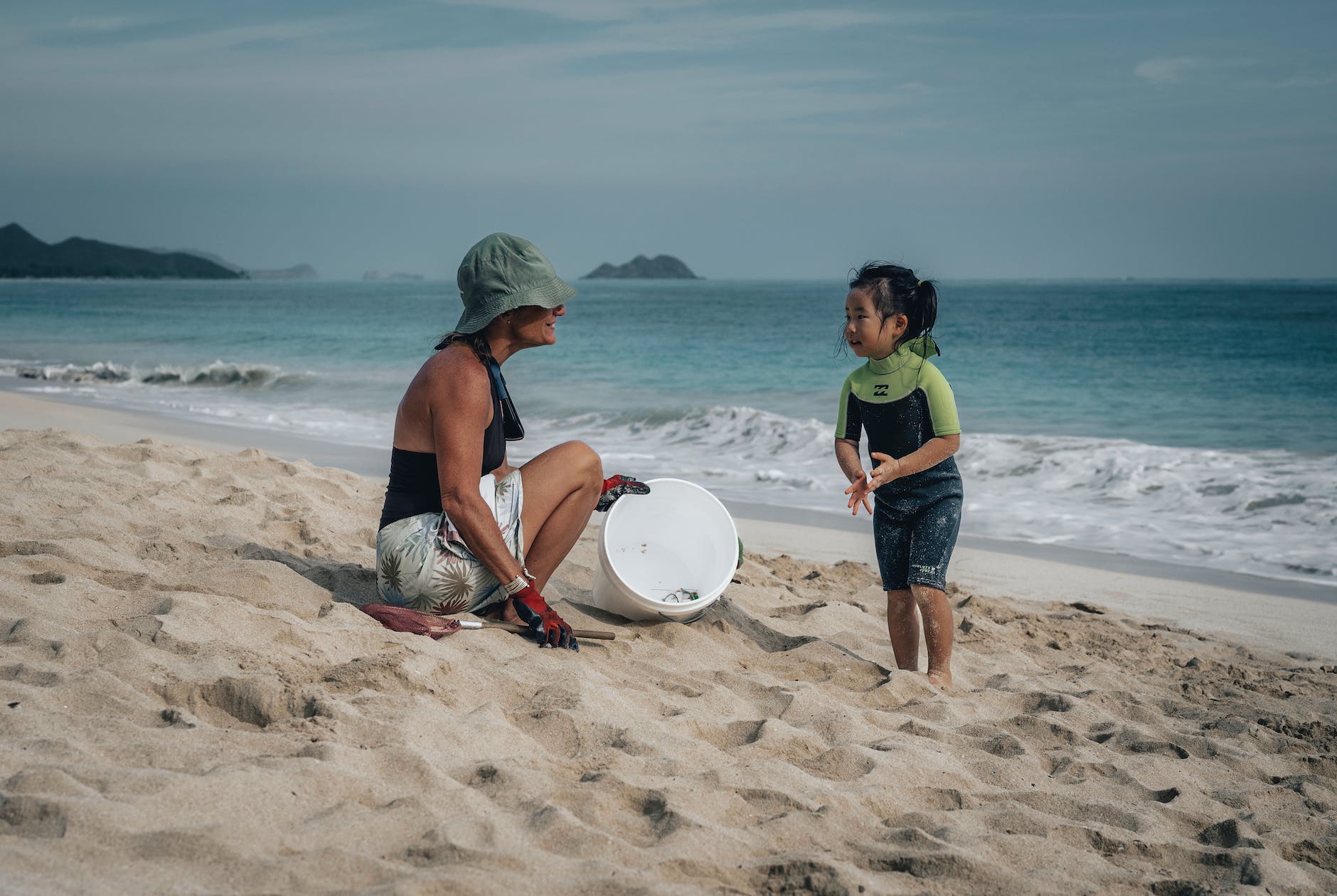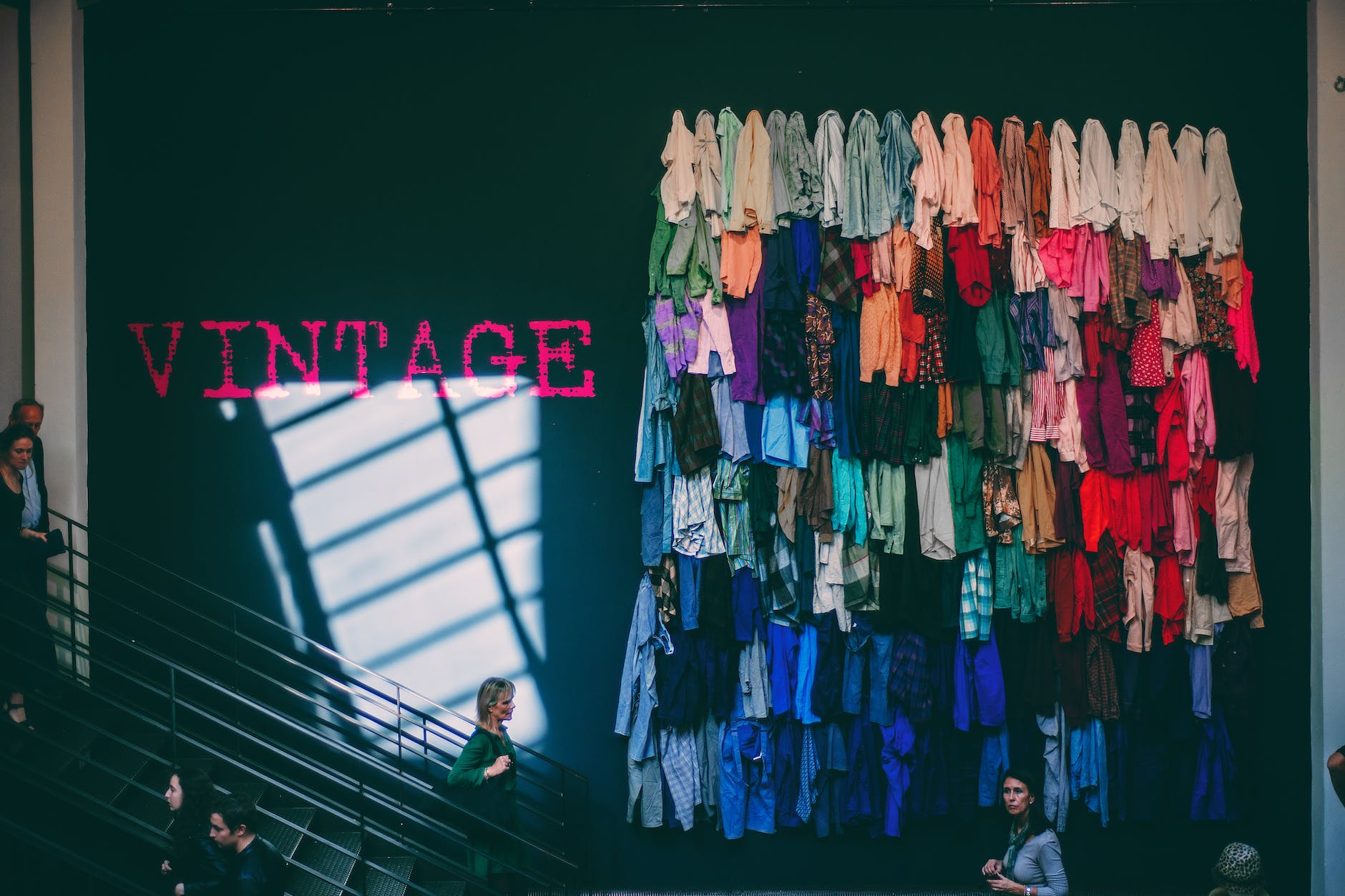A quarter of the clothes in our wardrobes haven’t been worn in a year. A survey by environmental group WRAP estimates that the UK’s wardrobes hold 1.6 billion of unworn garments. Interestingly though it also found that when we buy preloved and second hand vintage items, we tend to keep them longer than those we purchase new! Nearly 1.5 years longer. That’s 5.4 years for preloved and vintage clothes, compared to 4 years for High-street picks. And, repairing clothing extends an item’s lifespan by a further 1.3 years.
So why then are clothing sales still on the up?
Sales of clothes have doubled from 100 to 200 billion units in a year. But sadly, the average number of times we are wearing our outfits has fallen by 36%. Here are the five things we think leads to wardrobe waste:
- Therapy. That’s right, the good old ‘retail therapy’. Feeling a little down and the ease of online buying contributes to owning way too many clothes. A study by Ellen McKinney and Elizabeth Bye found that 85% of the women admitted they had clothing that didn’t fit. Why? Often because we are buying for a lifestyle, or size we think we will be in the future.
- Trends. We buy on trend and that trend moves on. Next season it just doesn’t look right. Often second hand vintage clothes are timeless and last a lifetime.
- The Sales. One of the main reasons we keep on buying is for most of us passing up a bargain is too difficult. But, second hand and vintage clothes can be better quality at a lot less.
- Returns. Buying online has made it easy to buy more than you need to try it all on at home. Most companies offer free returns but often we leave it too long to return it. More clutter in the wardrobe.
- Sentimentality. Everyone has that favourite item hanging in the wardrobe that they can’t part with. Every piece of clothing has a shelf life (no pun intended) but at some point if it does not fit or look great it’s time to pass it on!
A change is needed!
With the focus on climate change more important for many people the environmental credentials of clothes are just as important as their style and price. It’s worth knowing that fast fashion generates more CO2 than the aviation and shipping industries combined!
The fashion industry uses around 93 billion cubic metres of water, leaving much of it contaminated by toxic chemicals which end up in our rivers and seas.

Then there are the micro plastics that are to be found in every corner of the planet. Many cheaper items are made of nylon or polyester and the process of making and washing these clothes sheds microfilaments that also end up in waterways. Scary fact, you are consuming about 4 grams of plastic every week, primarily through water, which is like eating an entire credit card!
What we cut in costs for garments is borne twice over by the planet, and it is absolutely crucial that we change our regulations and behaviours. Shopping more second hand is a great place to start. Rumage was born out of a need to reduce, reuse and recycle by making second hand a viable first choice for everyone.
“The tide is turning now on reusing things. Consumers are more powerful than they realise; if we all change our habits then the economic models will change from the ground up.”
Jo Spolton, Co-Founder & CEO Rumage.
The environmental impact of the fashion industry is huge. So, at Rumage we are passionate about bringing all the second hand market places into one place. Rumage makes it easy to save you money and save resources from landfill. Second hand will reduce the depletion of natural resources in manufacture and the burning of fuels in transportation around the globe.
And experts agree with us
“Second hand clothing is giving clothes a second life and it’s slowing down that fast-fashion cycle. I would say second hand (clothing) is actually one of the solutions to the overconsumption challenge.”
Fee Gilfeather, a sustainable fashion expert at charity Oxfam.
Buying preloved rather than new whenever you can is a win-win. It can help prevent waste and reduce carbon emissions. More than that, in these difficult times second hand can help you grab a bargain, find something unique, or upcycle something others have finished with! #GoRumage!
